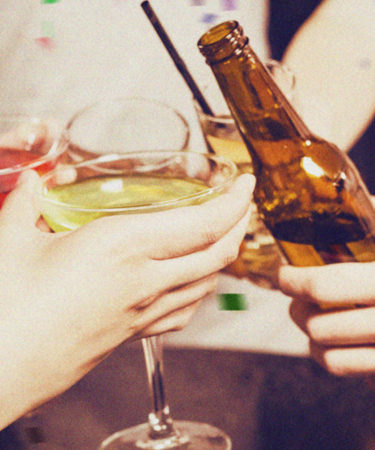
Send all questions to: advice@vinepair.com
If I’m trying to lose weight in January, should I drink wine, beer, or a cocktail?
If you’re trying to lose weight, the main thing you should do is drink in moderation. If you’re able to accomplish that, then as long as you avoid sugary drinks (i.e., no cocktails or sangria) the caloric differences in wine versus straight liquor are pretty negligible. Where you could run into an issue, though, is beer. The higher the beer’s alcohol content, the higher the calories. So while a light beer or a Guinness won’t deliver a ton of calories, those high-gravity — think over 7 percent alcohol — IPAs and porters we love to drink in the winter are not ideal.
Where did Dry January come from?
It depends on who you ask. John Ore doesn’t exactly claim to be the creator of the movement, but he certainly does a lot of posturing as its unofficial spokesperson. Great Britain’s Board of Health also stakes a claim, but who knows?
Don't Miss A Drop
Get the latest in beer, wine, and cocktail culture sent straight to your inbox.Not only do we not know for sure where Dry January came from, but no one can agree if the idea is actually a good one. Some say the act of quitting cold-turkey for a limited period of time might actually do more harm than good, as many tend to binge-drink when the month of abstention is over. Better, then, to commit to drinking conscientiously all year long. Become aware of when you are drinking, how often, and how many drinks you are consuming in one sitting. This is a much better way to ensure a healthy drinking life.
Will I get sick if I drink eggnog from December?
If you used plenty of alcohol in your eggnog, then no. In fact, older eggnog is actually safer to drink than younger eggnog.
In 2009 microbiologists at the Rockefeller Institute for Medical Research decided to test what would happen to eggnog if they put a ton of bacteria in it, specifically salmonella. They added the equivalent of getting between one and 10 infected eggs. They then tested the eggnog over a three-week period. After one week, bacteria was diminished but not gone. After two weeks, there was even less, but still some present. After three weeks, it was completely sterile.
This revelation caused lots of people to start aging eggnog — some are aging it up to a full year before consuming. Those who do claim the nog becomes more complex, and all of its flavors more integrated. So as long as you added a lot of alcohol to begin with, you should be good to go.
